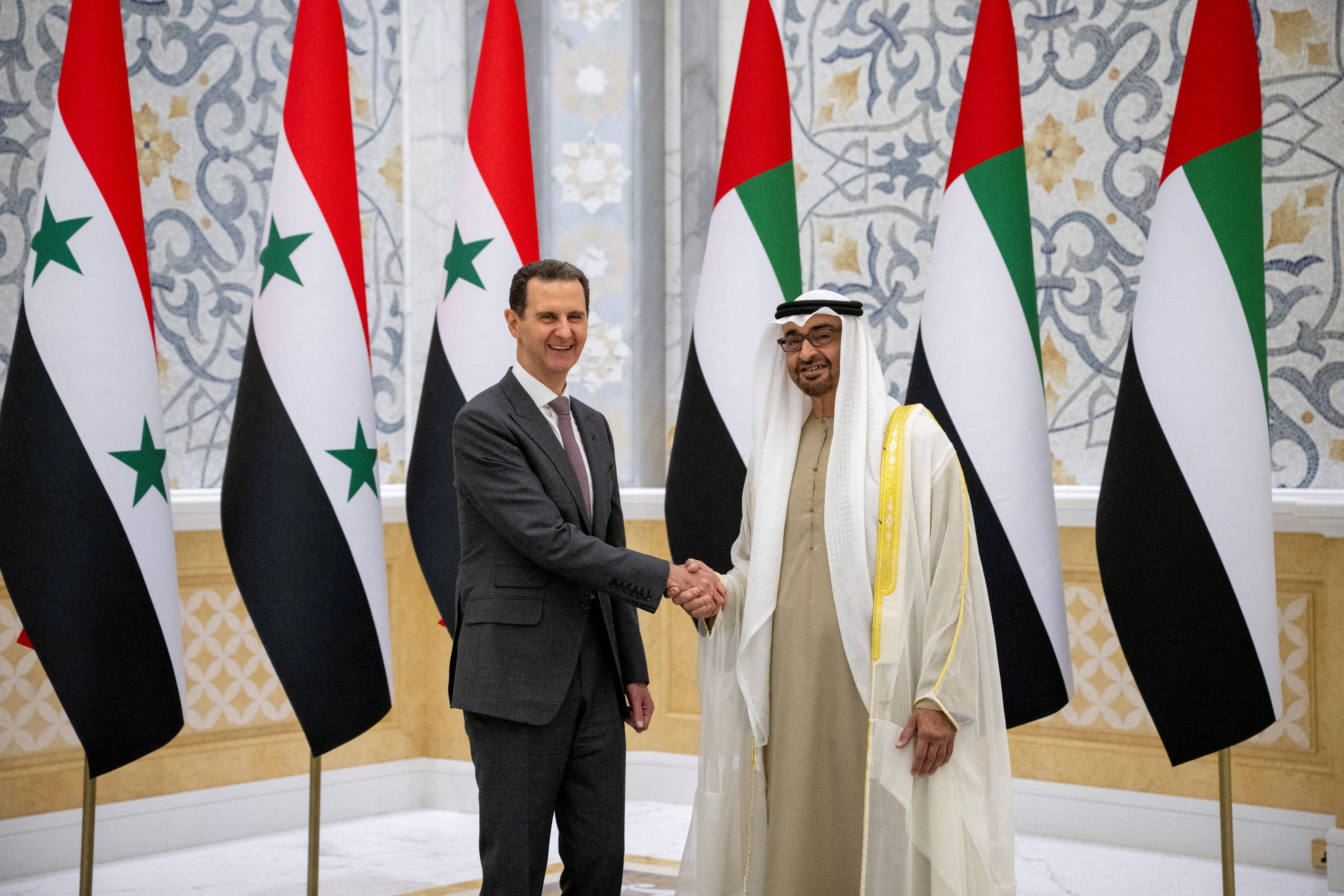Why is the world’s biggest climate summit rolling out the red carpet for a war criminal?
The United Arab Emirates arrested academic Matthew Hedges on spurious charges in 2018, keeping him in solitary confinement for seven months. Little wonder, he writes, that this regime stooped to inviting Bashar al-Assad to Cop28


News that the United Arab Emirates, this year hosting the United Nations’ Cop28, has extended Syrian dictator and war criminal Bashar al-Assad an invitation to the annual climate summit has shocked the world, but not me.
Amnesty International has described the decision as “a sick joke”; Human Rights Watch has branded it “outrageous”. The UK cannot be seen to be legitimising it.
The anger is to be expected. Assad’s brutal repression of Syria has resulted in one of the bloodiest civil wars in modern history. His reign of terror is marked by torture, disappearances and even chemical weapons attacks against his own people. Hundreds of thousands have died at the hands of his murderous government forces, the vast majority of them civilians.
Millions have fled the country creating the largest refugee crisis in the world. So heinous are Assad’s crimes against humanity that even the UAE and its fellow autocratic regimes in the Arab League – hardly themselves bastions of human rights – had isolated him for more than a decade. But Assad was readmitted into the league this month. Soon after, the UAE’s invitation followed. And yet, not all of us were taken by surprise.
No matter how many billions they spend on laundering their reputation, I am more intimately familiar than most with the UAE’s contempt for human rights. In 2018, I was detained there, tortured and sentenced to life imprisonment, falsely accused of espionage on behalf of the UK government. Of course, there was no due process. My “trial” lasted just five minutes. Thanks to the tireless campaigning of my wife and the eventual, but reluctant, wheels of British diplomacy turning behind the scene, I was freed after almost seven months. The seven months were hell but it was better than the life sentence the UAE tried to give me.
For the first month I slept on the floor and had no access to a shower. For most of the six months I was kept in solitary confinement and in cuffs. I was fed a constant cocktail of drugs for which I developed withdrawal symptoms. I was suicidal and continue to struggle. I developed PTSD and insomnia and still need to see a specialist psychiatrist. So, for me at least, the UAE’s invitation for Assad was no surprise.
What is notable is that it seems out of step with the UAE’s modus operandi in managing its global reputation. Usually so careful in this regard, their appointment as hosts of Cop28 has been followed by a series of uncharacteristic PR missteps. That the UAE was selected to host Cop28 in the first place raised eyebrows, not only because of its dismal human rights record but also the fact it is one of the world’s leading producers of oil and gas.
It was widely understood to be the UAE’s latest cynical attempt to whitewash – or in this case, greenwash – its reputation on the world stage. But everything went downhill from there. First, the UAE caused outrage by appointing the CEO of its state oil company as the event’s president. Shortly afterwards, news that the country was planning massive oil and gas expansions made global headlines. Around the same time, chilling reports emerged that attendees were issued written warnings not to criticise the UAE or in any other way protest at the event. Assad’s invitation is just the latest – and by many accounts, most egregious – insult to an important international event aimed at finding a solution to an issue, which will most acutely impact the world’s most vulnerable.
Every country is entitled to representation at important international events, but it is one thing to extend an invitation to a Syrian representative; quite another to welcome by direct invitation the leader who has committed such genocidal acts. It is bad enough that the UAE is attempting to leverage Cop28 to improve its own reputation, let alone trying to cleanse that of Assad. This is beyond concern, it is criminal.
Britain must take some kind of stand. Too many UK politicians have lobbied for the UAE. Our government cannot let UAE money or the fact that they are in the midst of negotiating a trade deal with the UAE and its fellow Gulf Cooperation Council members prevent us from doing the right thing.
As a first step, we must think carefully about who we send to the event. Certainly, Britain must have a presence at Cop28. That is beyond question. Not least as we were the hosts of Cop26 in 2021. But sending anyone at minister level or more senior would signal to the world – and to the UAE – that we condone our hosts making a mockery of the event and everything it stands for – everything we stand for. You wouldn’t see the foreign secretary or prime minister standing shoulder to shoulder with Putin at, say, the G20. The same must be true of Assad. The only correct course of action is to put enormous pressure on the UAE to reverse its decision. Our government should lead this call and maybe prove that Britain still has a role to play in international diplomacy.






Join our commenting forum
Join thought-provoking conversations, follow other Independent readers and see their replies
Comments